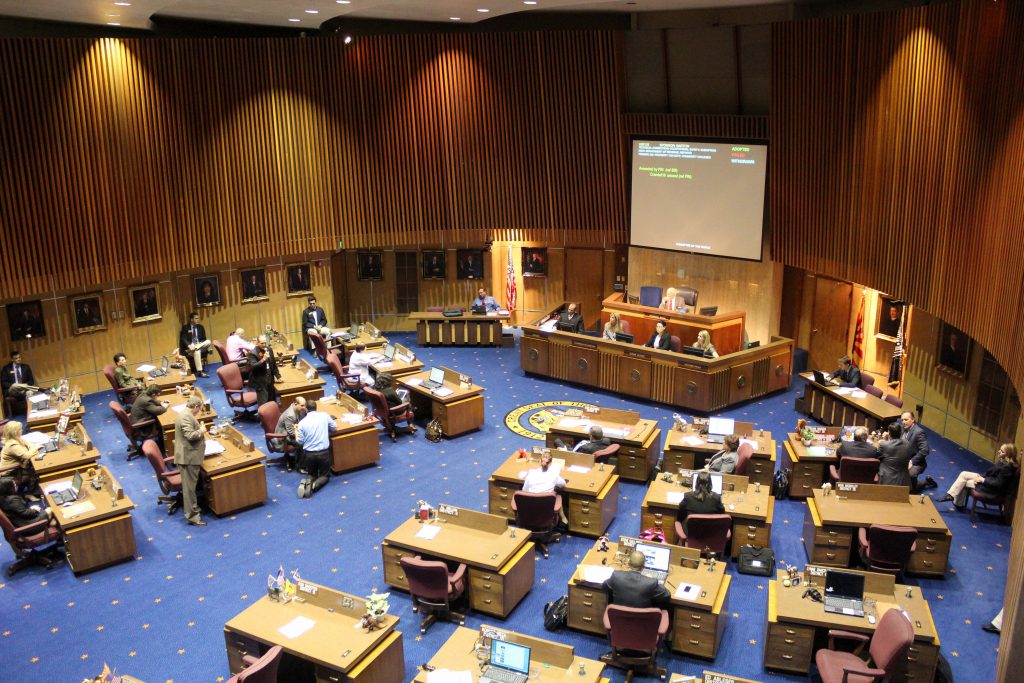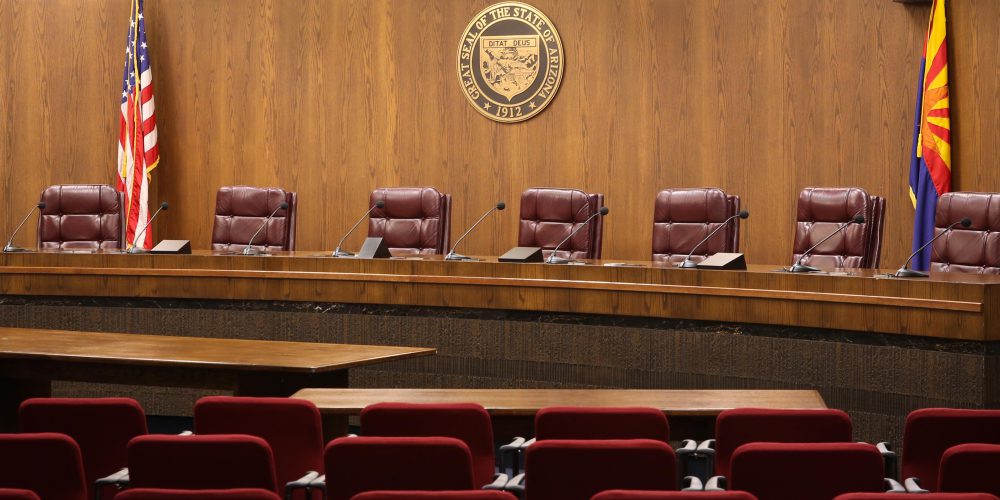 As so often with this process, there’s good news and bad news.
As so often with this process, there’s good news and bad news.
THE GOOD NEWS:
We have so far succeeded in moving two bills through their first set of committees.
SB1071/HB2290: Directs occupational licensing boards to give provisional licenses (90 days-1 year) to people with criminal convictions. Identical versions of this bill were introduced in the House and the Senate. HB2290 passed through Military and Public Safety and Rules Committees. SB1071 passed through Senate Judiciary and is awaiting a hearing in Rules.
SB1069: This bill was originally intended to expunge criminal records. Unfortunately, it was met with strong opposition and the complicated nature of the existing processes for sealing records made it impossible for us to address these concerns within the time frame for having bills heard. Fortunately, we were able to replace it with two different and complementary amendments:
- A “strike-all” amendment that simply says that if someone goes through the “set aside” process and has their conviction set aside, they do not have to check “the box” on an application that asks if they have been convicted of a felony.
- Senator Martin Quezada offered a second amendment that is a full ‘Ban The Box’ amendment, barring any state agencies from asking about a criminal history until they have been offered the job. And even then, they can only ask about convictions within the last 5 years that have a direct relationship to the job.
We are pleased to say that both of these amendments passed through Senate Judiciary on Thursday! Next, the bills will “cross-over” to the other house and get assigned to committees there. We will keep you posted on what committees will hear them and when the hearings will take place.
 NOW THE BAD NEWS:
NOW THE BAD NEWS:
SB1068: The bill was designed to amend Truth in Sentencing to allow some prisoners to earn earlier release. There was a very similar bill that was also introduced in the Senate, and we worked with the sponsor and authors of the bill to blend the two together. The final version would have allowed people convicted of Class 5 & 6 felonies to earn release credits of one day for every two days served, with the exception of those designated as dangerous offenders or sex offenders.
Despite our attempts to negotiate a “workable” solution, the County Attorneys came out in force against ANY changes to Truth in Sentencing. Maricopa County Attorney Bill Montgomery’s office has confirmed that the will not support any sentencing reform in this area.
We are assessing our options at this point.
SB1067: This bill required the Department of Corrections to use a system of “graduated sanctions” to respond to technical violations of the terms of post-incarceration community supervision. Currently, revocations for technical violations (not new crimes) represent 18% of new admissions to prison in Arizona. The bill is based on the evidence-based practice referred to as “Swift, Certain & Fair.” It directs probation/parole officers to respond to technical violations with right-sized accountability measures, like requiring people who have positive drug tests to participate in more treatment programs or get tested more often. One serious sanction, short of revoking the person back to prison to do the remainder of their sentence, is a short-term jail stay (no more than 5 days at a time). This allows for a serious and immediate consequence for significant or repeated violations, but with some accommodations to ensure the individual does not lose their job or their family. The bill language instructs the supervising officer to make sure that any jail sanction is scheduled around the person’s work schedule.
Donna Hamm of Middle Ground Prison Reform contacted the members of the committee last week and instructed them to vote against this bill and SB1068. We spoke to her and requested that she send us her suggested changes to the bill. We incorporated several of her suggestions, including inserting a “due process” provision for the Board of Executive Clemency to approve jail sanctions. She led us to believe that this was approved by the Board of Executive Clemency. We also spoke with the Department of Corrections and attempted to address their complaints. We had an amendment ready for the hearing on Thursday that we felt was an appropriate compromise. Unfortunately, Ms. Hamm continued to oppose the bill, and also brought members of the Board of Executive Clemency to the hearing in opposition. As a result, the Sponsor of the bill decided not to allow it to be heard that day.
See the attached article from Gary Grado at the Arizona Capitol Times for more information about what happened at the hearing.
We will be holding a “stakeholder meeting” this Thursday to attempt to resolve issues with this bill. We are hopeful that a compromise will be reached to allow us to move forward with a graduated sanctions policy to reduce the number of people revoked back to the Department of Corrections for technical violations of community supervision.
Next week, we will know what committees the bills will be assigned to, and we will keep you up to date on our progress. Thank you for your support!
Categories: AFSC in the News, News & Updates, Sentencing, Vision of Justice